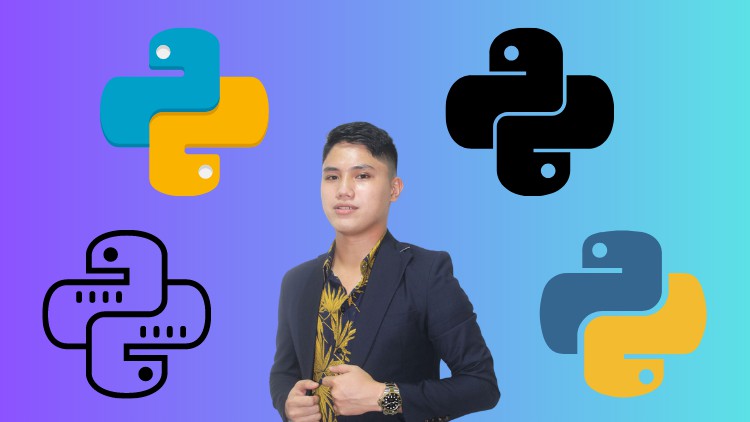
Covering the basics of Python programming : syntax, data types, control flow, and functions with tons of class projects.
What you will learn
Understand Python basics: Learners will grasp the fundamental concepts of Python programming, including data types, variables, and basic syntax.
Master control flow: Students will gain proficiency in using conditional statements and loops to control the flow of their Python programs.
Handle functions and modules: Participants will learn to create reusable code by defining and using functions, as well as organizing code using modules.
Work with data structures: Learners will explore essential data structures such as lists, tuples, dictionaries, and sets to manage and manipulate data effective
Dive into object-oriented programming (OOP): Students will comprehend the principles of OOP, including classes, objects, inheritance, and encapsulation.
Handle exceptions and errors: Participants will discover techniques to handle exceptions and errors gracefully, ensuring robust and fault-tolerant programs.
Read and write files: Learners will gain the skills to read data from files and write data into files, enabling them to work with external data sources.
Explore built-in libraries: Students will be introduced to essential Python libraries, such as math, random, and datetime, to perform advanced operations
Interact with user input: Participants will learn how to interact with users by receiving and processing input, enhancing the user experience of their programs.
Develop real-world projects: Learners will work on hands-on projects, applying the learned concepts to create practical Python applications.
Debug and optimize code: Students will gain insights into debugging techniques and learn strategies to optimize Python code for better performance.
Prepare for intermediate Python: Participants will be ready to progress to more advanced Python topics and continue their journey towards becoming proficient
Description
Welcome to Python 101: Master the Fundamentals – Python For Beginners! If you’re eager to step into the world of programming and embark on an exciting journey of learning Python, then this course is your gateway to proficiency. Whether you have zero programming experience or come from a non-technical background, this comprehensive course is designed to take you from a complete beginner to a confident Python programmer.
Our expert instructors will guide you through the essential Python concepts and fundamentals in a clear and approachable manner. You’ll start by understanding the basic syntax, data types, and variables, enabling you to write simple Python programs right from the start. As you progress, you’ll dive into the world of control flow, mastering conditional statements and loops to create dynamic and interactive applications.
Handling functions and modules will become second nature as you learn to organize your code effectively, making it reusable and easy to maintain. You’ll explore essential data structures like lists, tuples, dictionaries, and sets, equipping you with the skills to manage and manipulate data efficiently.
To take your Python expertise even further, you’ll delve into object-oriented programming (OOP), understanding the concepts of classes, objects, inheritance, and encapsulation, which are crucial for building complex and scalable applications.
Throughout the course, you’ll engage in practical hands-on projects, applying the concepts you learn to real-world scenarios, reinforcing your understanding and building confidence in your programming skills.
By the end of Python 101, you’ll be well-prepared to tackle more advanced Python topics and take on exciting programming challenges. Enroll now and embark on your journey to become a skilled Python developer, ready to tackle the world of software development, data analysis, web applications, and beyond!
Content